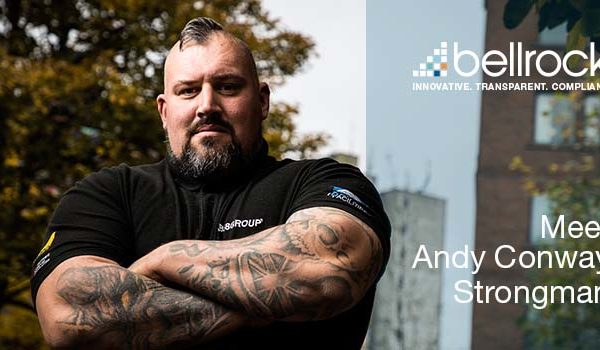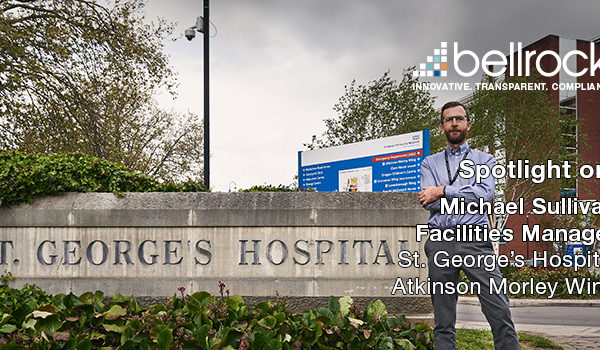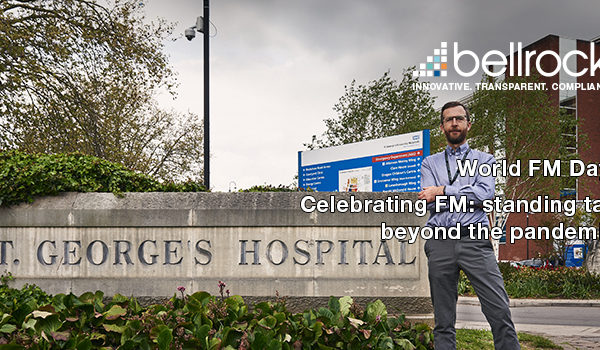An incredible job, under incredible stresses
Over the last week or so, I’ve spoken with several of our engineers on the front lines. One thing I’ve come to realise very quickly is that these guys are doing an incredible job under incredible stresses in the unbelievable circumstances we find ourselves in. A lot of us are fortunate in the sense that one of the most challenging things we’ve had to overcome is getting out for our essential food shop and being able to find what we need on the shelves. I also recognise that we, as humans, are social creatures, and we all need the interaction that going to the office provides us. Some of us are doing ok with lockdown. I’m sure many aren’t, and that presents a huge challenge to our mental well-being.
That all seems to pale by comparison when you come to understand the challenges our front-line engineers are having to overcome. They’re putting themselves in harm’s way of an invisible predator that has no preference in who it attacks. The threat is very real for our guys that are out there, delivering services for our customers, and keeping the Bellrock cogs turning.
Richard Coolahan is Bellrock’s Technical Health Care Contract Manager at St. George’s Hospital, Atkinson Morley Wing in London. Richard was kind enough to set up a call with Jack and Billy, two of our engineers at St. George’s Hospital. When I spoke to them last week, they were just about to finish their shifts. They’ve spent the last 14 days working at St George’s Hospital in the Atkinson Morley wing and they were ready for their well-deserved break.
Minimising risk in a hot zone
The crews at St George’s are split into two teams, an A team and a B team. There’s about six in each team and they do 14-day straight shifts, 12 hours at a time covering both day and night shifts ensuring the building is covered 24hrs a day. They’ve split into two teams to ensure that if anyone is unfortunate enough to come down with the virus, it minimises the risk of it having a knock-on effect to everyone else, and this is a very real threat working in such a hot zone. Their main priority is to maintain consistency in their delivery of services to the hospital, and as such, they know that at any given time, they may have to take over for anyone who has fallen ill. Taking these measures means that they can continue to meet the needs and requirements of the hospital staff to help them look after their patients and keep them as comfortable as possible.
Jack lives about a half hour away, while Billy comes in from Kent. They use separate rental vehicles to go to and from work. Because they go onto the Covid-19 wards, they are more than aware of the disastrous effect on the whole team should someone come down with the virus, so this helps to minimise the potential impact.
We have to go in with tunnel vision
Jack told me that it can get quite overwhelming at times, “When we go into the ICUs, with patients being in the room, that’s quite a difficult place to be mentally. But we’re here for the patients. Often, we have to go in with tunnel vision, so that we don’t see too much“.
Jack lives with a large family of seven back at home, and he’s more than aware that the precautions he has to take at work needs to be maintained on a different level when he goes home. “I’ve had to go into the garage and get my old tent out because no one wants to be around me, so I’ve been staying in that. But it’s ok, I’ve got my own little bed”.
Levels of extra, upon extra, upon extra behaviours
Their whole routine has changed. “We have separate clothes that we travel in. When we get to site, we change our clothes, putting our travel clothes in a clean pillowcase. We then wear scrubs over the top of these. We do it this way so that if we did come into contact with anything, we can change the scrubs, leave them in the appropriate places and go have a shower straight away. When we leave site, we put our travel clothes back on and put our ‘under scrubs’ clothes in the pillowcase. This then goes straight into the washer, separately from the rest of the family’s washing, as soon as I get in the door. I then must completely sanitise and go straight into the shower. There are multiple levels of extra, upon extra, upon extra behaviours that we all have to practice every day.”
When speaking with Billy, it became clear how embedded these guys are into their entire environment. “We’re all in here as a team. We’re all in it together, like a wheel turning. We don’t have the option of saying ‘I don’t want to go in there’… we’ve got to, we want to. We’re here for the patients ultimately.”
We’re a close-knit group of people
“Every day is a challenge on its own. But it brings us all closer together. We’re working behind the scenes to help everything fall in to place. From the domestics, to the housekeepers, the doctors and nurses, we are all playing a massive part just to keep the wheel spinning. We’re a close-knit group of people, working together towards a final goal, everyone is uplifting one another, pulling together and doing what they can to keep morale up.”
“A lot of people don’t actually know what we do here. We’re covered under a blanket definition of ‘engineer’ without any real knowledge of what our roles in this have actually been. A lot of people don’t realise that this is a Covid-19 hospital and the stresses that envelope us working here.”
Billy’s wife has serious health vulnerabilities. She’s had to move out of the family home to stay with her daughter to ensure minimal risk to her health. His only contact with her now is talking on the phone in the morning and in the evening. He has to go home to an empty house. “It’s a very strange feeling. We’ve been married 40 years. I’ve had to call her up to ask her how to work the remote control.”
With this fantastic spell of glorious weather, everyone wants to be outdoors, as we would if we were under normal circumstances. But current times have taught us things like social distancing, and we’ve had to learn new rules on when and why we can go outside of our homes. Most of us are doing what we need to be doing, but we know not everyone is. We have a new word in our dictionary. It’s ‘covidiot’.
It’s frustrating
I asked the guys what they find to be frustrating for them in all of this… “It’s so frustrating to see people not social distancing, especially as we are working in the repercussions of that. But the media hasn’t helped. Maybe, rather than focusing on the rule breakers, they focused more on our patients when they are completely dependent on oxygen. That would be a real eye opener. We work in it, we see it all the time, and sadly, we are almost immune to it now. But there’s a lot of ‘out of sight, out of mind’ mentality to this. And what you can’t see, can’t happen to you. “







